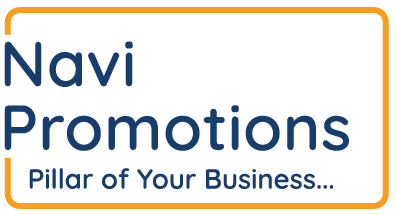In today’s digital landscape, effective marketing strategies rely heavily on the use of specialized tools and technologies. These tools not only streamline marketing processes but also provide valuable insights and data to optimize campaigns. Whether you’re a seasoned marketer or just starting your digital marketing journey, here are ten essential digital marketing tools that can help elevate your marketing efforts and drive better results.
Table of Content
10 Essential Digital Marketing Tools Every Marketer Should Know
1. Google Analytics
2. Keyword Research Tools
3. Social Media Management Tools
4. Email Marketing Software
5. Content Management Systems (CMS)
6. Search Engine Optimization (SEO) Tools
7. Pay-Per-Click (PPC) Advertising Tools
8. Customer Relationship Management (CRM) Software
9. Heatmap and User Behavior Tracking Tools
10. Project Management Tools
Conclusion
1. Google Analytics
Google Analytics is a powerful web analytics tool that provides valuable data about your website’s performance. It offers detailed insights into visitor behavior, traffic sources, conversion rates, and much more. By understanding these metrics, marketers can make informed decisions to improve user experience, optimize marketing campaigns, and increase overall website performance.
2. Keyword Research Tools
Keywords play a vital role in search engine optimization (SEO) and content marketing. Keyword research tools like SEMrush, Ahrefs, and Google Keyword Planner help marketers identify relevant keywords with high search volumes and low competition. These tools provide valuable data on keyword trends, search volume, and competitor analysis, allowing marketers to create keyword-rich content that resonates with their target audience.
3. Social Media Management Tools
To effectively manage social media platforms and engage with your audience, social media management tools like Hootsuite, Buffer, and Sprout Social are indispensable. These tools enable marketers to schedule posts, track social media performance, monitor brand mentions, and engage with followers across multiple social channels from a single dashboard.
4. Email Marketing Software
Email marketing remains one of the most effective channels for nurturing leads and driving conversions. Tools like Mailchimp, Constant Contact, and ConvertKit provide robust email marketing features such as email automation, customizable templates, A/B testing, and analytics. These tools help marketers create engaging email campaigns, segment their audience, and track campaign performance.
5. Content Management Systems (CMS)
Content Management Systems, such as WordPress, Joomla, and Drupal, are essential for managing and publishing website content. These platforms offer user-friendly interfaces, customizable themes, and plugins that enhance website functionality. CMSs enable marketers to create and optimize content easily, improving SEO and user experience.
6. Search Engine Optimization (SEO) Tools
SEO tools help marketers optimize their websites for better search engine rankings. Tools like Moz, SEMrush, and Ahrefs provide insights into website performance, backlink analysis, keyword tracking, and competitor research. By leveraging these tools, marketers can optimize their website’s on-page elements, identify areas for improvement, and track their SEO progress over time.
7. Pay-Per-Click (PPC) Advertising Tools
PPC advertising tools like Google Ads and Bing Ads allow marketers to create and manage paid advertising campaigns. These platforms provide in-depth targeting options, ad performance tracking, and keyword research tools to optimize campaign effectiveness. Marketers can leverage PPC advertising to drive targeted traffic, increase brand visibility, and generate leads.
8. Customer Relationship Management (CRM) Software
CRM software, such as Salesforce, HubSpot, and Zoho CRM, helps marketers manage customer relationships, track interactions, and streamline sales processes. These tools enable marketers to nurture leads, automate personalized communication, and analyze customer data to improve targeting and customer satisfaction.
9. Heatmap and User Behavior Tracking Tools
Understanding how users interact with your website is crucial for optimizing user experience and conversion rates. Heatmap and user behavior tracking tools like Hotjar and Crazy Egg provide visual representations of user engagement, highlighting areas of interest andidentifying potential areas for improvement. These tools track user clicks, scrolling behavior, and mouse movements, allowing marketers to make data-driven decisions to enhance website design and functionality.
10. Project Management Tools
Efficient project management is essential for successful marketing campaigns. Project management tools like Asana, Trello, and Basecamp help marketers streamline workflows, assign tasks, set deadlines, and collaborate with team members. These tools ensure that marketing projects stay organized, tasks are completed on time, and team members stay aligned to achieve marketing goals.
Conclusion
In conclusion, these ten essential digital marketing tools can greatly enhance a marketer’s efficiency, effectiveness, and overall success. From analytics and SEO to social media management and project coordination, leveraging the power of these tools empowers marketers to make data-driven decisions, optimize campaigns, and drive better results. Incorporating these tools into your marketing arsenal will give you a competitive edge in today’s digital landscape. Stay ahead of the curve by harnessing the power of these essential digital marketing tools.
Dont Hesitate To Contact Us
We’re here to assist you and provide the support you need. Contact us today and let’s start a conversation.

